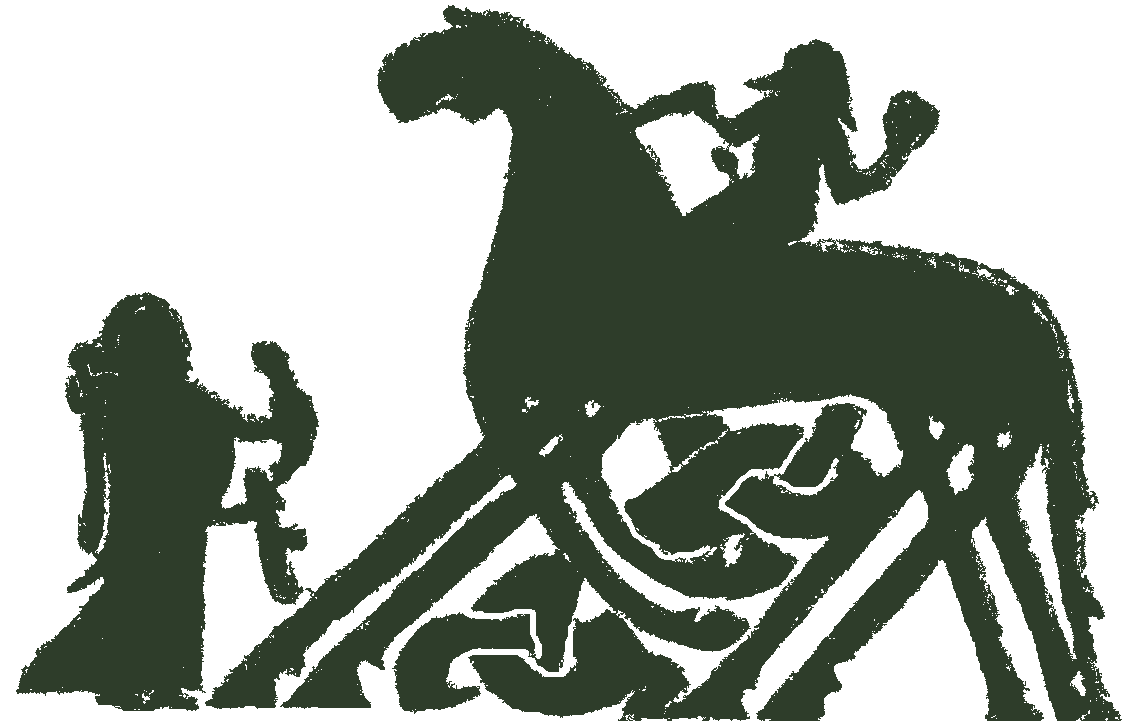Bragi inn gamli Boddason
description
It is not possible to be precise about either the dates of Bragi Boddason’s floruit or about the details of his life. Some of the latter are almost certainly legendary (e.g. the narratives associated with Bragi Lv1abIV, VIII and Bragi Troll), while his sobriquet inn gamli ‘the Old’ places him almost in prehistory, seen from an Icelandic viewpoint. Ldn (ÍF 1, 82) mentions him as being associated by marriage with the family of Arinbjǫrn hersir from Firðir (Fjordane) in Western Norway, and Eg (ÍF 2, 182) places him in the same context. Ldn tells that Bragi’s wife was Lopthœna, daughter of another poet, Erpr lútandi ‘the Stooping’. Bragi seems to have been active as a poet in Norway one or two generations before the settlement of Iceland (c. 850-70). In Skáldatal’s list of poets (SnE 1848-87, III, 251, 259, 270), Bragi is the first named skald whose works have survived, at least in part. There he is associated with three patrons, Bjǫrn at Haugi, probably a Norwegian ruler, though some sources consider him Swedish (see Jón Jóhannesson 1940), Eysteinn beli and Ragnarr loðbrók ‘Shaggy breeches’, there said to be a Danish king who himself composed poetry. Snorri Sturluson (SnE 1998, I, 72-3) associates Bragi’s poem Ragnarsdrápa (Rdr) with Ragnarr loðbrók, and he may be one and the same as the Ragnarr mentioned in Rdr’s refrain and ‘the son of Sigurðr’ referred to in Rdr 2/4. If Bragi’s patron Ragnarr is to be identified with the Viking leader who led an attack on Paris in 845, supposedly died in a snake-pit at the hands of King Ælla of Northumbria, and was the father of the Ingware and Ubba that the F version of the Anglo-Saxon Chronicle claims led raids on England in the 860s and 70s (de Vries 1928; McTurk 1991), then their association is just possible chronologically and geographically, as Ragnarr’s connections within Scandinavia were with Norway as well as with Denmark (Smyth 1977, 17-20).
Alongside information about Bragi the poet, Icelandic traditions also mention a god or supernatural being of this name (cf. Grí 44/7, Lok, Sigrdr 16/2, SnE 2005, 25). In the frame narrative of Skm, Snorri Sturluson represents Bragi as the god who informs a curious sea-deity Ægir about the nature of skaldic diction. The connection between Bragi the poet and Bragi the god is uncertain, but it seems likely that Bragi Boddason’s iconic status as the first skald whose poetry survived into historical times contributed to the formation of the concept of a deity closely associated with the practice of skaldic verse in a courtly context (cf. Anon EirmI, Eyv HákI). Some scholars have linked Bragi and the origin of dróttkvætt with the influence of Irish poetry and culture, but their arguments are inconclusive (cf. Turville-Petre 1972a, 170-80; Kuhn 1983, 272-5; Sayers 1992).
